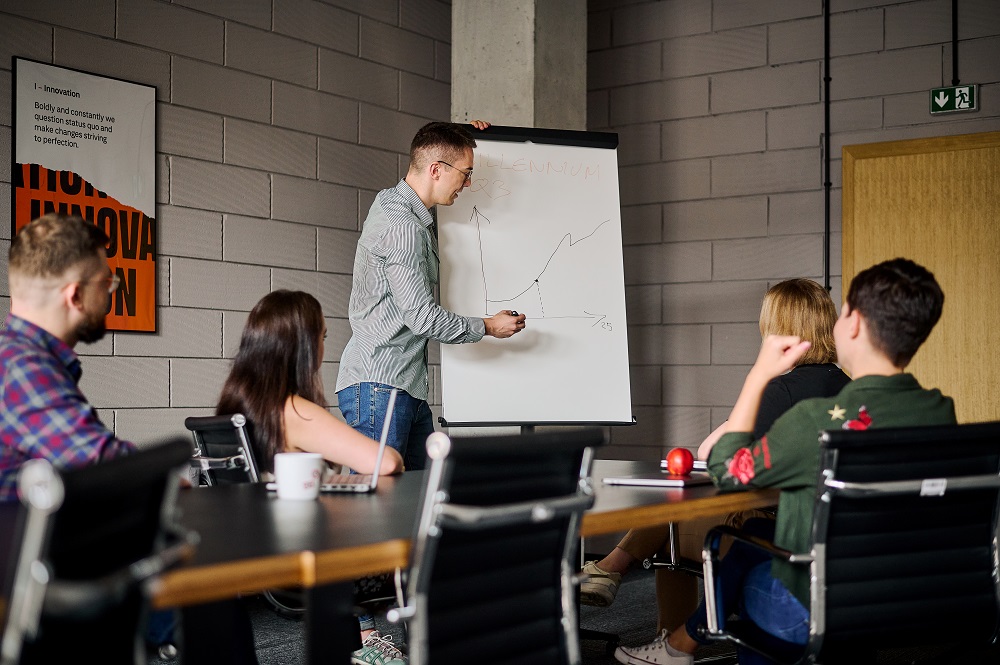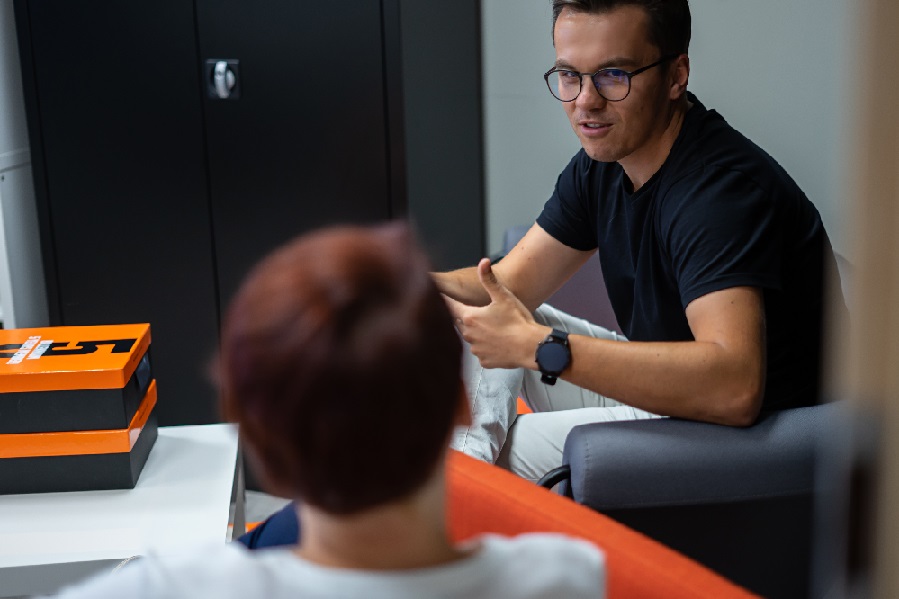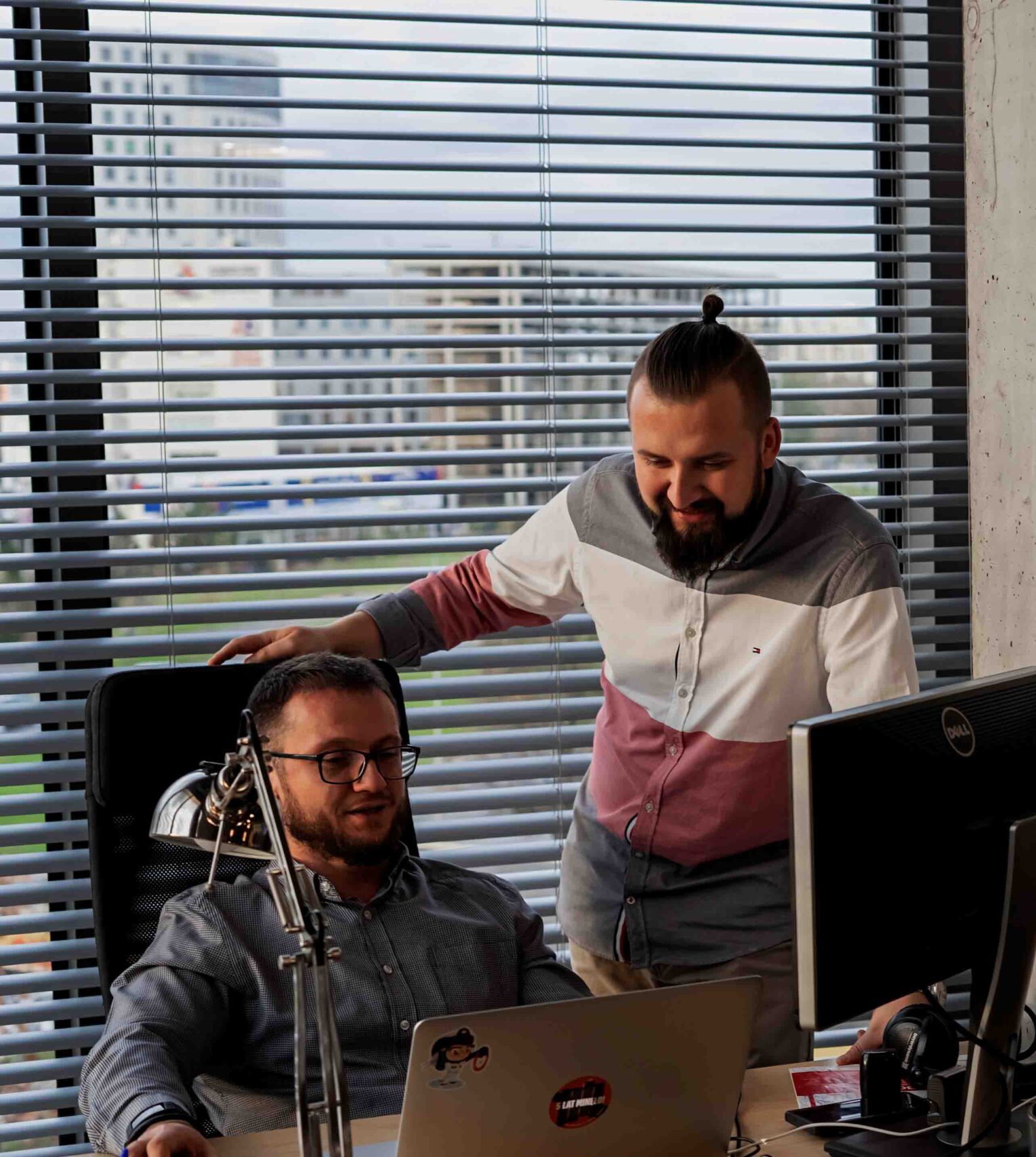In recent years, software development has undergone a significant transformation. Gone are the days when focusing on developing technical skills alone was sufficient. Nowadays, it’s not enough because, besides coding itself, skills such as communication, collaboration, and understanding customer needs are essential and inseparable from it. This evolution reflects a broader trend in the workforce, emphasizing the critical role of social skills alongside technical expertise.
Recognizing the Importance of Soft Skills
Historically, software development was dominated by hard skills – primarily coding. We used to see a programmer as a person hidden in a dark room, with a hoody over his head, glancing at a PC monitor where a non-tech person could see only Matrix-like falling symbols. However, as the industry has evolved, the realization that effective software solutions are not just built on code but also on the developers’ ability to work as part of a team has become visible. Communication, resolving conflicts, and collaborating have become just as important as technical skills.
Research confirming the Shift
Harvard University’s research highlights a tangible increase in the demand for strong interpersonal skills, correlating this rise with the growth of teamwork in professional settings. Notably, these skills are linked to higher wages, underlining their value in the workplace. Furthermore, Harvard’s findings suggest that teams with team players who possess strong social skills outperform others, leading to a direct positive impact on economic outcomes, with a potential increase in productivity by up to 20%.
Read more about the Harvard study here.
5 Key Dynamics of Effective Teams
Google’s Project Aristotle further supports the idea that the key to effective teams is not just who is on the team but also how team members interact. This extensive study revealed five fundamental dynamics that distinguish successful teams:
- Psychological Safety: Team members feel safe to take risks and express themselves without fear of negative consequences.
- Dependability: Each member consistently fulfills their responsibilities on time.
- Structure and Clarity: There are clear roles, goals, and execution plans.
- Meaning: The work is personally significant to each team member.
- Impact: Team members see their work contributing meaningfully to the organization’s goals.
Knowing that Google hires professionals at high and equal technical levels, the connection between the team’s success and the hard skills is relatively low.
These dynamics are vital for maintaining team cohesion and effectiveness, particularly in remote and hybrid settings. Psychological safety is magnified when team members are not physically together, as a virtual environment makes it harder to build relations.
Remote and Hybrid work environment
Recent studies further highlight the importance of social skills in remote and hybrid work environments:
- McKinsey & Company points out that skills such as openness and effective communication are crucial for fostering inclusion and maintaining team cohesion in remote work environments.
- A Harvard Business Publishing study suggests that navigating interpersonal conflicts effectively through enhanced social skills can transform potential issues into innovative solutions in hybrid settings.
- Research published in the Journal of Computer-Mediated Communication shows that effective communication, a core social skill, is vital for overcoming the limitations imposed by the lack of face-to-face interaction in remote settings.
These findings suggest that as workplaces evolve to include more remote and hybrid models, the demand for strong social skills across teams becomes even more critical. Developing these skills can lead to more effective communication, greater team cohesion, and improved overall performance in diverse work settings.
Resources for Skill Development
For teams looking to improve these competencies, I would like to propose some great resources to start improving your team’s effectiveness:
- Center for Creative Leadership – tons of insights and research around soft skills in work environment topics,
- Coaching for Leaders podcast – my favorite podcast by Dave Stachowiak,
- Work of Amy Edmondson – a specialist in psychological safety in a work environment,
- Think with Google – a platform by Google, sharing insights on team effectiveness and more,
- Platforms like LinkedIn Learning, Udemy, and Coursera offer targeted communication and collaboration training.
Learn even more about Team Synergy
More organizations can achieve effective team dynamics by investing in social skills development, leading to increased innovation and productivity.
The synthesis of insights from Harvard, Google, and remote/hybrid work studies provides a compelling narrative on the critical role of social skills in today’s work environments. As the digital landscape continues to evolve, the ability to navigate complex social interactions will remain a vital component of successful software development teams.
To go even deeper into the discussion on how to build efficient IT teams, watch a webinar “Synergy in Bytes: Mastering Effective Team Building in IT” I hosted.
Watch now to discover more about team synergy and its inestimable value for project collaboration.
















